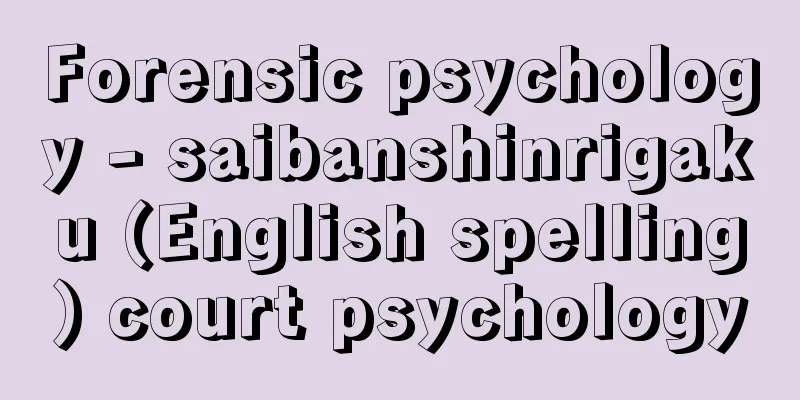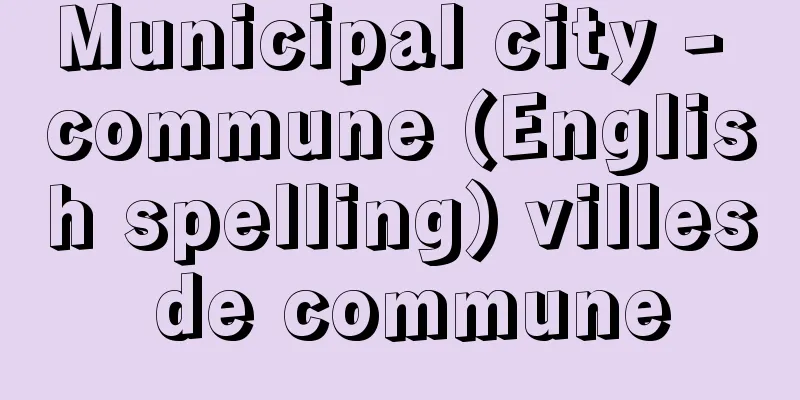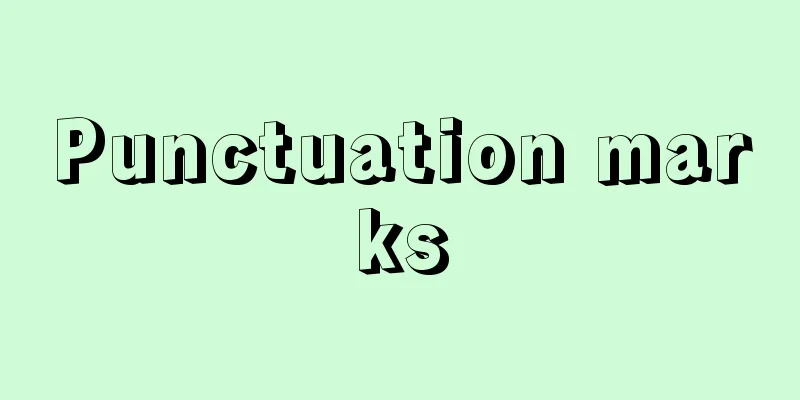Forensic psychology - saibanshinrigaku (English spelling) court psychology

|
It is one of the applied fields of psychology that deals with issues of human behavior in the judicial process. It can include any problem related to the judicial process. However, when we say "trial," it can also include not only the trial process but also police and prosecutorial investigations in criminal cases. [Similar concepts to forensic psychology] The main similar concepts are forensic psychology, criminal psychology, and investigative psychology. Of these, forensic psychology generally refers to the border area between law and psychology, and interactions are expected to deepen theoretical research in both fields. It includes psychological issues related to criminal cases, as well as basic issues such as research on responsibility attribution and social justice, and themes related to civil cases. Criminal psychology includes the causes and occurrence of crimes, the treatment of perpetrators, appraisals, and treatment of victims, and there is an overlap with forensic psychology in terms of the application of psychology to criminal investigations. However, since forensic psychology is a field that mainly looks at the management of trials, it may not cover the causes and occurrence of crimes before police investigations, or the treatment of perpetrators and victims after trials are over. Investigative psychology aims to apply psychology to police investigations, and includes, for example, profiling, detection of falsehoods, and interrogation techniques. Because it focuses on the pre-trial stage, it is a field that focuses mainly on police investigations among the areas covered by forensic psychology. [Major themes in forensic psychology] For example, the accuracy of eyewitness testimony and memory of eyewitnesses, factors that affect judges' judgments in trials, decision-making by judges and juries, and scientific jury selection in jury trials. Eyewitness testimony is a major theme because memory research is psychologically familiar and because, although it is often used as evidence in trials, it is prone to errors. In addition to judges, judges in trials include jurors, associate judges, and lay judges in Japan, depending on the court system. Other themes in forensic psychology include whether the parties in a trial's claims and methods of proof and persuasive efforts have an influence on such judges, and whether impressions of the defendant and the parties in a trial affect their judgments. Unless socially isolated, judges in trials are exposed to various reports of incidents. A major issue is whether the influence of such reports appears in trials, and especially whether reports before the trial begins have an influence on the judges. In addition, there are one or more judges who make decisions in trials. When we want to examine the decision-making process of one person, it becomes a decision-making problem; when we want to examine the decision-making process of multiple people, it becomes a group decision-making problem. [Applying psychology to the trial process] From the perspective of psychology, forensic psychology is a field that can be understood relatively easily, but since the field of application is trials, it is difficult to set meaningful problems without knowledge of trial procedures, the judicial system, and the rules and legal thinking and discussion methods that support them. On the other hand, from the perspective of law, psychology should be important as a field that can deal with human behavior systematically and empirically, but there are many challenges to overcome before its importance in the legal world can be recognized. In legal hermeneutics, norms are derived mainly from the interpretation of provisions and other texts, and then applied to real problems to solve problems. However, the knowledge of human behavior required for such interpretation cannot be obtained from hermeneutics, so it is necessary to refer to past precedents or knowledge from other fields. Therefore, legal hermeneutics always potentially requires knowledge of human behavior, such as psychology. However, for judges in trials and those who administer the law, those who provide knowledge as experts on human behavior may appear to be interfering with their judgments and threatening their discretion and autonomy in judgment. For this reason, entering the world of trials and trying to contribute to the decision-making process by using knowledge of psychology is sometimes seen as heresy in the legal world. One example is testimonial psychology in Japan. Even in the United States, there have been many conflicts and changes regarding whether to allow psychologists as expert witnesses to testify in trials. South Korea has a system in which the courts have psychologists as psychology advisors, and there are few countries in the world that incorporate psychology into the courts to this extent. [The dawn of modern psychology and forensic psychology] The movement to apply psychology to trials is not a new one in modern psychology. The dawn of modern psychology is said to be when Wundt, W. established a psychology laboratory in 1879, and 14 years later, in 1893, Cattell, JM, conducted research on memory and testimony. This was a simple study in which university students were asked to answer questions about the weather one week before. However, Cattell's research on memory and testimony led to research on testimony by researchers such as Binet, A., Stern, W., and Liszt, F. von. Meanwhile, legal practitioners showed deep interest, and Gross, H. published "A Manual for the Investigating Judge" (1893). In Japan, criminal law scholar Makino Eiichi conducted experiments in collaboration with psychologist Terada Seiichi. As a movement to systematize psychological research on trials, in Germany, Haff, K. published a book called "Legal Psychology" in 1924. In Japan, Uematsu Tadashi published "Aspects of Trial Psychology" in 1949, and was the first Japanese author to use "trial psychology" in the title. This book marked the beginning of a movement to go beyond criminal psychology and to link jurisprudence and psychology in a more general way. However, as sociology of law later became established as a general term for "empirical science related to law," forensic psychology came to be understood as a part of sociology of law. [Rediscovery of forensic psychology] In the past, the application of psychological research to trials was limited in scope and was ignored in Germany and the United States. However, in recent years, several academic societies related to forensic psychology have emerged not only in Europe and the United States, but also in Japan, and they are active. This was triggered by the occurrence of violent crimes, the ability of witnesses to testify, the accuracy of eyewitness testimony, and the judgments and processes of juries, which attracted attention. In Japan, this field has also been attracting more attention in recent years due to widespread reporting of wrongful convictions and the introduction of the lay judge system. With growing social interest in the field, forensic psychology is one field that is expected to develop in the future. →Forensic psychiatry →Investigative psychology →Criminal psychology →Legal psychology [Masahiro Fujita] Latest Sources Psychology Encyclopedia Latest Psychology Encyclopedia About Information |
|
裁判の過程における人間行動の課題を扱う心理学の応用分野の一つである。裁判の過程にかかわる問題であればすべて含まれうる。ただし,「裁判」といっても公判trialの過程だけでなく,刑事事件での警察や検察の捜査も含まれることがある。 【裁判心理学の類似概念】 類似概念の主なものとして法心理学forensic psychology,犯罪心理学criminal psychology,捜査心理学investigative psychologyがある。このうち法心理学は法律学と心理学の境界領域一般を指し,双方の領域における理論研究の深化のための相互作用が期待されている。そこには刑事事件にかかわる心理学的な諸問題をはじめ責任帰属や社会的公正の研究などの基礎的な問題や民事事件に関するテーマも含まれる。犯罪心理学には犯罪の原因,発生,加害者の処遇,鑑定,被害者の扱いなどが含まれ,犯罪捜査に対する心理学の応用という意味では裁判心理学と重なりがあるが,裁判心理学は主として裁判の運営という観点から見た分野であるため,警察の捜査よりも前の犯罪の原因や発生,また裁判が終わった後の加害者の処遇や被害者の取り扱いについてはカバーしていないことがある。捜査心理学は警察における捜査への心理学の応用をめざしたものであり,たとえばプロファイリングや虚偽検出,取り調べの技法などが含まれる。裁判の前段階に焦点が当たっているため,裁判心理学がカバーする領域のうち,主に警察による捜査にとくに焦点を当てた分野である。 【裁判心理学で扱われる主なテーマ】 たとえば,目撃証言や目撃の記憶の正確性,裁判における判断者の判断に影響する要因,裁判官や陪審の意思決定,陪審員制裁判での科学的陪審選択などがある。目撃証言eyewitness testimonyが大きなテーマとなっているのは,記憶研究が心理学的になじみやすいことと,裁判でよく証拠として採用されるにもかかわらず誤りが入り込みやすいという事情がある。裁判における判断者には,裁判官のほかに裁判制度によって,陪審員,参審員,日本では裁判員が挙げられる。そういった判断者に対し,裁判の当事者の主張・立証の方法や説得の働きかけが影響を与えるのか,被告人や当事者の印象は判断に影響するのか,というテーマも裁判心理学のテーマとして挙げられる。裁判の判断者は社会的に隔離されていない限りさまざまな事件報道にさらされている。そのような報道の影響が裁判で現われないか,とくに裁判が始まる前の報道が判断者に影響を与えないかについて公判前報道の影響が大きな問題とされる。また,判断者は1名または複数で裁判の判断にあたる。1名の判断過程を検討したい場合には意思決定の問題,複数人の判断過程を検討したい場合は集団意思決定の問題となる。 【裁判過程への心理学の応用について】 裁判心理学は心理学から見ると,比較的抵抗なく理解できる分野であるが,応用分野が裁判であることから,裁判手続きや司法制度,それを支えるルールと法の考え方や議論の仕方について知らないと意義のある問題設定をすることが難しくなる。一方,法学から見ると,心理学は人間行動をシステマチックかつ実証的に扱うことができる分野として重要な意味をもつはずだが,法の世界の中でその重要性が認められるためには多くの課題がある。法解釈学では,主として条文などの文言解釈から規範を導き出し,現実の問題に適用して問題解決を図る。ただ,その解釈に必要になる人間行動に関する知識は解釈学からは得られないため,過去の先例を参照したり,他分野の知識を参照する必要がある。したがって,法解釈学は潜在的につねに心理学などの人間行動の知識を必要としている。しかし,裁判における判断者や法律の運用者にとっては,人間行動についての専門家としてその知識を提供する者は,自分たちの判断に介入し,判断の自由裁量や自律性を脅かすものと映ることがある。そのため,心理学の知識を用いて裁判の世界に入り,その判断過程に貢献しようとすることは,法の世界では異端と見られることがある。たとえば日本における供述心理学などはその一例である。アメリカにおいても心理学者の専門家証人に裁判で証言を許すかについても,幾多の衝突や変遷を経ている。韓国は裁判所に心理学者の心理学アドバイザーを置く制度をもつが,これほどに心理学を法廷に取り入れている国は世界の中でも少ない。 【近代心理学と裁判心理学の黎明】 裁判に心理学を応用しようという動きは,近代心理学の中では新しいものではない。近代心理学のあけぼのは1879年にブントWundt,W.が心理学実験室を作ったときとされるが,その14年後の1893年にはキャッテルCattell,J.M.が記憶と証言に関する研究を行なった。これは大学生に1週間前の天気を回答させるという簡易なものであった。しかし,キャッテルの記憶と証言に関する研究は,ビネーBinet,A.やシュテルンStern,W.,リストLiszt,F.vonなどの研究者たちの証言に関する研究を生んだ。一方,法律実務家からはグロースGross,H.の『予審判事必携』(1893)が出るなど深い関心が見られた。日本でも,刑法学者の牧野英一が心理学者の寺田精一と共同で実験を行なっている。 裁判に関する心理学的研究の体系化の動きとしては,ドイツでは,1924年にハフ,Haff,K.が『法心理学Rechtspsychologie』という書を出版したことが特筆される。日本では植松正が1949年に『裁判心理学の諸相』を出版しており,日本で最初に「裁判心理学」を書名に用いた。この書によって犯罪心理学を超え,より一般的なかたちで法律学と心理学とを結びつける動きが始まった。しかし,後に法社会学が「法に関する経験科学」の総称として定着したため,裁判心理学は法社会学の一部として理解されるようになった。 【裁判心理学の再発見】 かつては裁判への心理学的研究の応用は範囲が狭いなどの欠点があったため,ドイツやアメリカなどでも顧みられなかったが,近年,欧米のみならず,日本でも裁判心理学に関連する学会が複数存在するようになり,活発に活動している。きっかけとして,凶悪事件の発生や,証人の証言能力や目撃証言の正確性,陪審の判断やその過程が注目を集めたことがあった。また日本では,冤罪事件の広範な報道や裁判員制度の導入をきっかけに,この分野が近年ますます注目されるようになっている。裁判心理学は,社会的関心の高まりを背景として,今後の発展が見込まれる分野の一つといえるだろう。 →司法精神医学 →捜査心理学 →犯罪心理学 →法心理学 〔藤田 政博〕 出典 最新 心理学事典最新 心理学事典について 情報 |
<<: Resale price maintenance contract
Recommend
Mexican moccasin (English spelling)
...It is found in Taiwan, southern China, and Ind...
Clam chowder
...The most well-known examples are the Parisien,...
Okawagari - Okawagari
…After the fall of Osaka Castle, Ieyasu granted Y...
Toyotomi clan
This is a modern surname that began with Toyotomi...
Homoneura
…However, even today scholars have different opin...
Hideo Yoshida
The fourth president of Dentsu Inc. A man of meri...
aediles
...The powerful plebeians wanted equal rights wit...
Fuke Shakuhachi
〘Noun〙① A type of shakuhachi. In contrast to the g...
Carbonated drinks - carbonated drinks
A type of soft drink. Carbon dioxide is dissolved ...
Yellow Ting Jing (Huang Ting Jing)
Taoist scriptures. Generally, it is a collective t...
Via Aemilia (English spelling)
…stretching northwest from Rome along the Etrusca...
《Kirare Yozo》 - Beautiful cutting
...The cast includes Ichikawa Danjūrō VIII as Y...
Dry plants - Dry plants
One of three classifications of terrestrial plant...
Whole pipette
...a glass measuring device used to dispense a fi...
Basket-star
A general term for marine animals belonging to th...









